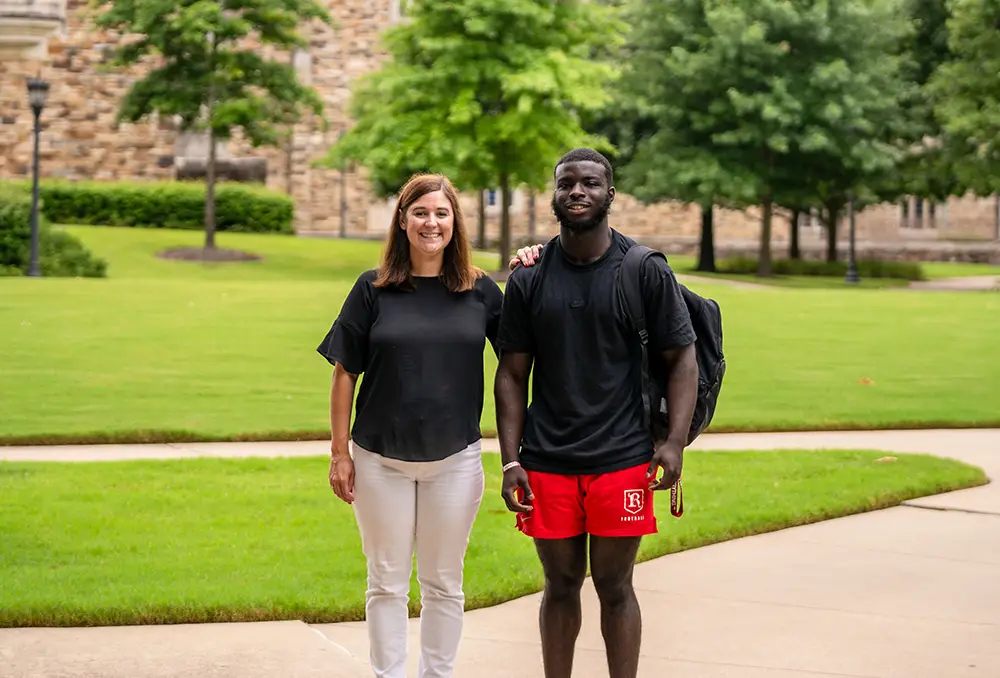May Is National Foster Care Month
May is National Foster Care Awareness Month—a time to recognize the resilience of children and youth in the foster care system and the individuals who support them. At Youth Villages, we understand the unique challenges these young people face, especially as they transition from adolescence to adulthood. One of the most crucial transitions in this process is the pursuit of secondary education, which plays a significant role in shaping their futures.
In North Carolina, there are close to 15,000 youth in foster care, many of whom struggle with the instability of frequent moves that causes disrupted educational experiences. However, with the right support, these young people can overcome obstacles and succeed academically. As a result, youth in foster care are more likely to experience academic setbacks and higher dropout rates compared to their peers.
According to data from the National Working Group on Foster Care and Education, approximately 50% of foster youth graduate from high school within four years, and only 3%-4% of former foster youth obtain a four-year college degree, a far lower percentage than the general population. In North Carolina, the statistics are similarly concerning, with many students in foster care facing barriers to success.
Youth Villages is committed to ensuring that youth in foster care have access to the resources, guidance, and opportunities they need to not only graduate from high school but also to pursue higher education, technical training, and career opportunities.
Youth in foster care often face significant challenges when it comes to their education. Frequent moves from one foster home to another can lead to missed school days, difficulty adjusting to new curricula, and gaps in their academic records. The emotional trauma that many of these children have experienced—due to abuse, neglect, or family instability—can also affect their ability to focus, complete assignments, or participate fully in class.
As a result, youth in foster care are more likely to experience academic setbacks and higher dropout rates compared to their peers. According to data from the National Working Group on Foster Care and Education, approximately 50% of foster youth graduate from high school within four years, and only 3-4% of former foster youth obtain a four-year college degree, a far lower percentage than the general population. In North Carolina, the statistics are similarly concerning, with many students in foster care facing barriers to success. However, with the right support, these young people can overcome obstacles and succeed academically. Youth Villages is committed to ensuring youth who experienced foster care have access to the resources, guidance and opportunities they need to not only graduate from high school but also to pursue higher education, technical training and career opportunities. Through our LifeSet Scholars program, we provide personalized academic support to help these students stay on track.
At Youth Villages, we recognize the importance of secondary education as a key to unlocking opportunities for youth in foster care. Through our Scholars program, we provide personalized academic support to help these students stay on track.
The Youth Villages LifeSet Scholars provides program was started to provide additional help to young people in our LifeSet program who are attending college. Key components are mentoring, educational opportunities, support systems, and other assistance as needed, all of which are designed to ensure that these young people are not left behind. The Scholars program focuses on helping young adults who experienced foster care youth navigate the challenges of both secondary education and the transition to adulthood.
During Foster Care Awareness Month, it’s important to remember that education is not just about earning a diploma—it’s about empowering youth to build a life that is fulfilling, independent, and full of potential. Through LifeSet Scholars, Youth Villages is breaking the cycle of instability by helping youth in who experienced foster care navigate secondary education, prepare for the workforce, and ultimately create brighter futures for themselves.
As a community, we can all play a role in supporting these efforts. Whether through mentoring, donating to organizations that support foster youth, or advocating for policy changes that improve educational outcomes, we have the power to make a difference.
Every child in foster care deserves the opportunity to achieve their dreams, and with the right support, that opportunity is within reach. This Foster Care Awareness Month let’s raise our voices in support of youth in foster care and ensure that every young person—no matter their circumstances—has the chance to succeed in school and beyond.
To help us expand our reach and help more youth in North Carolina, donate now or become a corporate partner.

